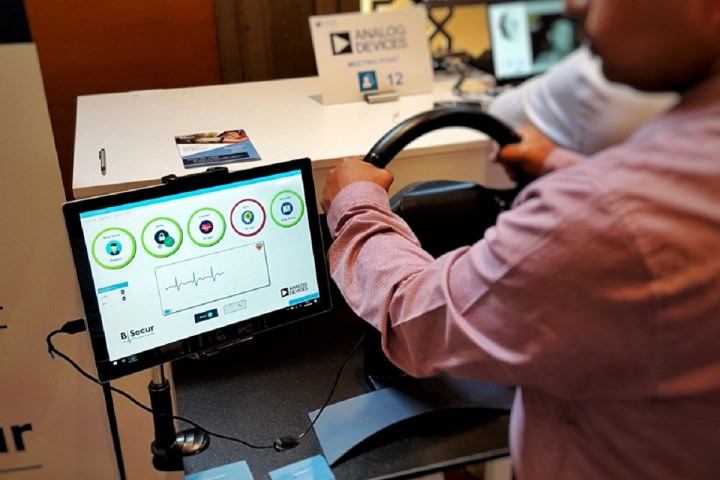
B-Secur has taken biometrics to the next level — while current platforms utilize fingerprint readers, iris scanners, and facial recognition to authenticate user identities, the company’s HeartKey technology taps the unique signals of each person’s heartbeat.
The science behind the B-Secur HeartKey platform focuses on electrocardiograms, better known as EKG or ECG, which are records of the bioelectrical activity for every heartbeat. The ECG patterns have several distinct features that make them unique for each person, similar to fingerprints, irises, and faces.
B-Secur has developed a suite of powerful algorithms and analytics based on HeartKey, which may be used for various purposes within the tech industry. At CES 2019, one of these applications is on display — the Advanced Auto Steering Wheel.
More CES 2019 coverage
- From Ring to Kasa, the best doorbells at CES are a knock to last year’s models
- Genius or extraneous? We tried out a laundry-folding machine at CES to find out
- Taste test: The new Impossible Burger is a triumph of food engineering
The Advanced Auto Steering Wheel, created in partnership with Analog Devices, integrates HeartKey technology into a vehicle’s steering wheel for security and safety features. The steering wheel comes with sensors to detect the driver’s ECG patterns as they place their hands on it. If the driver is confirmed as the owner, the car will start up.
B-Secur’s HeartKey, however, could do more than just authenticate users. The Advanced Auto Steering Wheel will also be able to detect a person’s stress levels, alertness, and cardiac conditions to make sure that they are safe while in the driver’s seat.
HeartKey’s dynamic confirmation of the user’s presence and health, as well as the continuous passive authentication, makes it much harder to trick compared to other biometric systems. In addition, the car will be able to detect potentially harmful cardiac changes through the constant monitoring of a driver’s heart condition, which is especially important when stuck in traffic jams during rush hour.
Of course, the proposals for B-Secur’s HeartKey go beyond the automotive space. In the industrial sector, B-Secur envisions HeartKey embedded in clothing and uniforms for the identification, location tracking, and health monitoring of workers. The technology may also further improve the health applications of wearable devices.
B-Secur announced partnerships with Cypress Semiconductor and NXP Semiconductors at CES 2019, for the inclusion of HeartKey technology into upcoming connected vehicles and devices. Starting up cars using heartbeats may be coming soon.


